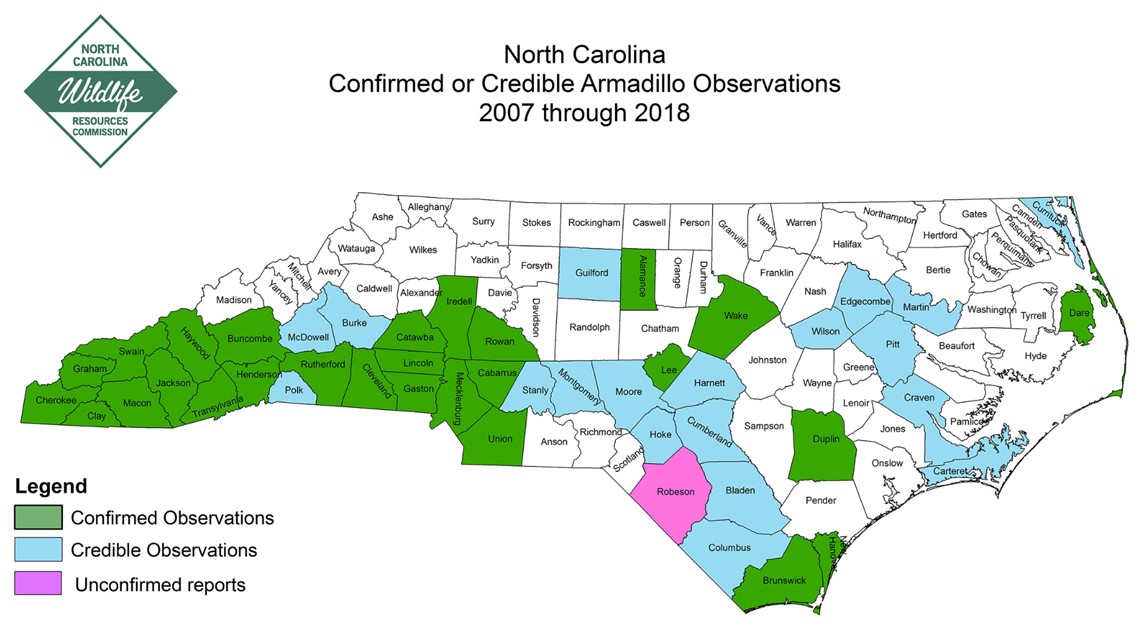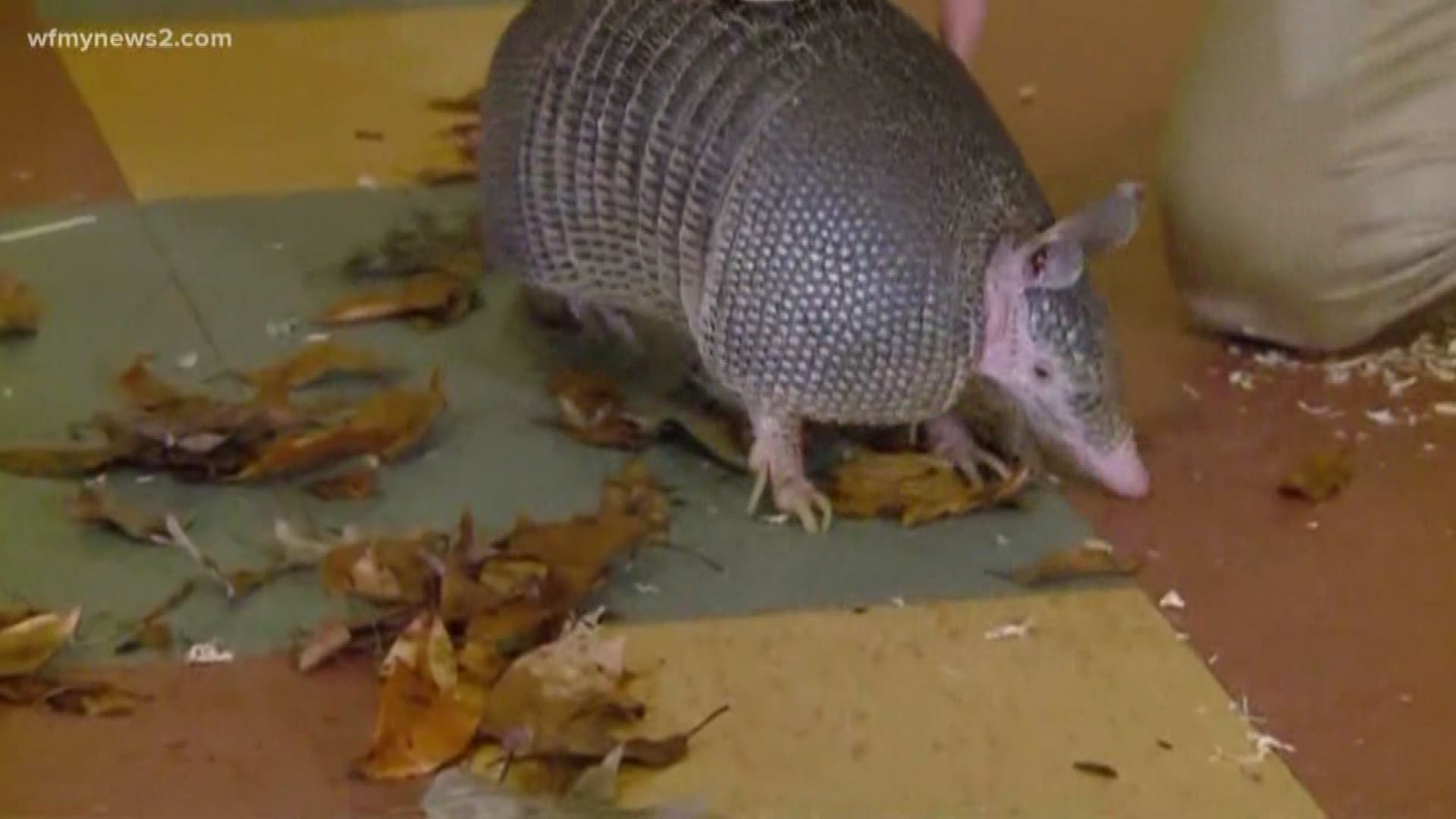GREENSBORO, N.C. — Armadillos, also known as 'armored pigs,' are species native to warmer climates in countries such as in Central and South America.
But don't be surprised if you hear about one or more roaming through our neighboring counties.
In a press release, the N.C. Wildlife Resources Commission shared its biologists "are seeking observations to help them determine the range expansion of armadillos in the Tar Heel state."
Through a special website, people who spot an armadillo can upload and share photos on the NC Armadillo project on iNaturalist.
People who want to report observations without the project site can send their armadillo observations to armadillo@ncwildlife.org.
NC Wildlife asks the email include a photo of the armadillo, date and time of when it was observed and the location where it was observed.
"GPS coordinates are best, but a detailed location description is acceptable," the press release details.
While armadillo sightings have increased recently, the first confirmed sighting happened in 2007 in Macon County.
"In the last 12 years has received more than 170 reports in 46 counties," NC Wildlife says.


Here in the Triad, NC Wildlife tells us there is one confirmed observation in Alamance County, meaning the person who spotted it did have a picture to support the sighting.
NC Wildlife has received a credible observation or a nine-banded armadillo in Guilford County, though there isn't a picture to support the claim.
Colleen Olfenbuttel, the Commission’s black bear and furbearer biologist, says the number of counties with confirmed observations is 27, stretching from Cherokee to Dare counties, and makes it likely the armadillo is expanding its range naturally throughout North Carolina, rather than being helped by human intervention.
“Whether armadillos continue spreading beyond their current range will be largely determined by climate,” said Olfenbuttel. “Mild winter temperature conditions are good for armadillos. Since they lack thick insulation and must dig for most foods, freezing conditions can cause them to starve or freeze to death.
“However, North Carolina is experiencing fewer long stretches of below freezing weather, which is allowing armadillos to expand northward.”

